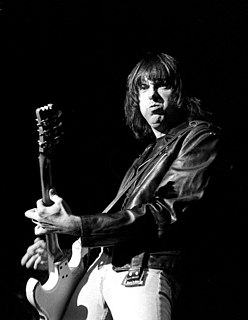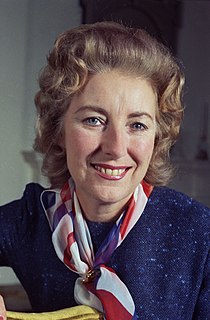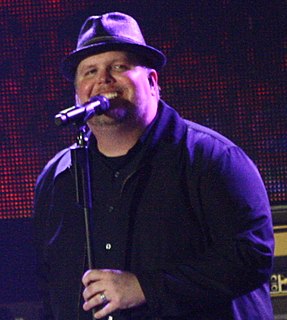A Quote by DJ Spooky
Usually bands would make a song to record for an album, but what happens with the deejays you say "Well the album is everything we need. Thanks band. You can go away now."
Related Quotes
You're not going to hit it every single time, and that's why, when I record an album, I do probably close to 50 songs. Each song I record has to get better. If it's not better than the last song that I made, it'll usually linger for a couple of months, and then it'll be put on the backburner, and then there'll be another song that I do, and then it often doesn't make it on the album.
People don't go to the record store anymore. It's crazy. The culture used to be so much stronger. People would go and support you, and go pick up the album. Not just for the music, but for the liner notes, for the artwork, just for the whole thing and to have it, and be able to say, 'I have this album.'
A weird thing about Gossip that I've always said: 'If I weren't in this band, I would never listen to it.' But I would go see it. It's a band you would go see that you don't necessarily listen to. We've always wanted to do a live album because personally, I think we're a way better band live than on record.
When I finally stopped [singing], he had been saying, like, the last day or so, he'd been saying, now, I think we should put this one in the album. So without him saying I want to record you and release an album, he kept - he started saying, let's put this one in the album. So the album, this big question, you know, began to take form, take shape. And Rick [Rubin] and I would weed out the songs.
I think record cover sleeves really led towards, but at the same time the album as we know it didn't come into being until mainly after the Second World War because record labels realized they'd be able to make a lot more money putting all the singles of an artist onto one album and selling the whole album as a kind of a concept.
































